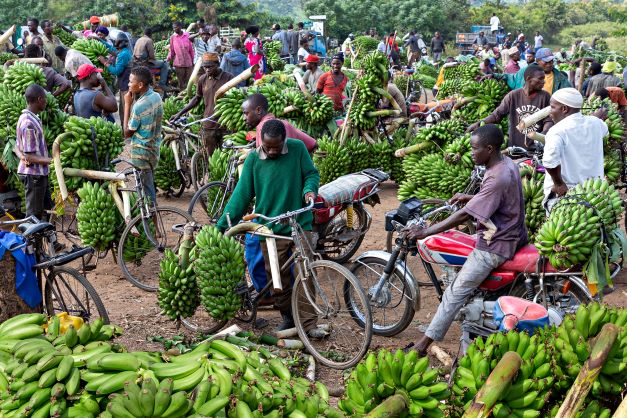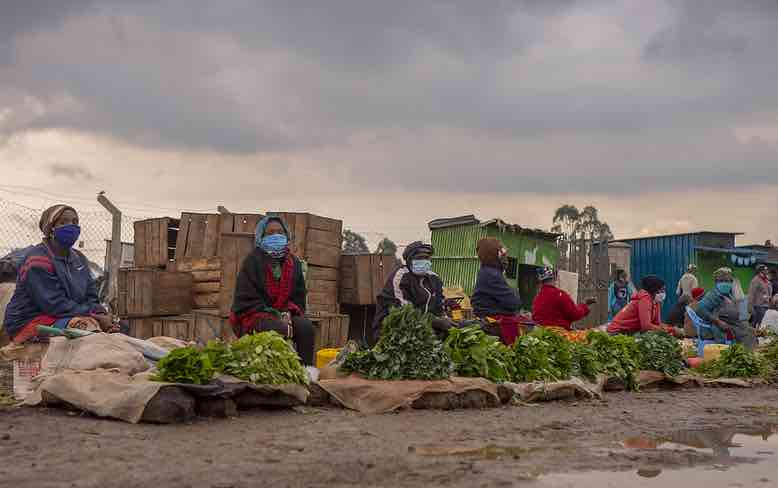Over 30 policy makers, researchers and practitioners came together online from 8 Francophone West African countries (Benin, Senegal, Burkina Faso, Mali, Niger, Cote D’Ivoire, Guinea Bissau, Togo), in early May 2021 to take part in the final Transform West Africa course: Evidence for Nutrition Policy and Programming. This year the course was taught virtually and was designed to provide future leaders with the chance to explore cutting-edge knowledge and evidence on nutrition, drawing both on global knowledge, but particularly on knowledge and evidence from the West Africa region, gathered by Transform Nutrition West Africa and our partners.
The course has been slowly evolving over the last decade, since first being taught as part of the original Transform Nutrition consortium’s Transforming Nutrition Summer School, which has been convened for global students in IDS, in the UK, and via a number of regional versions, including Transform Nutrition West Africa’s own first version, taught in English, in Accra, in March 2019. Transform Nutrition West Africa has also developed a unique partnership with the African Nutrition Leadership Programme, enabling us to offer courses both on evidence and data; and on leadership skills and competencies. The evidence course has had to move with the times – earlier courses were much more focused on the need to build momentum for nutrition action and were focused particularly on recent evidence on acting directly on nutrition (nutrition specific interventions). But as countries in the West Africa region increasingly deal with a growing ‘double burden’; or multiple forms of malnutrition occurring together (stunting, wasting, micronutrient deficiencies such as anaemia and people living with the consequences of obesity and related non-communicable diseases), it is essential that those working in nutrition policy and practice are familiar with recent evidence and knowledge in these areas. So the course was the first to fully integrate more of a focus on ‘malnutrition in all its forms’ and a life course and equity focused approach.
Colleagues from IFPRI and IDS partnering in Transform Nutrition West Africa and Professor Michelle Holdsworth, of the Institut de Recherche Pour la Dévelopment, France, convened the course over 3 days, with an innovative mixture of recorded sessions, self-study and group exercises and discussions via video conferencing. While the work to put the course together was hard, particularly as this was the first time we had run the course in French, the greatest work was carried out by participants, who really drove the discussion in terms of contributing experience and knowledge from the region.
For example, Dr Adama Diouf* shared the innovative research she is involved in: research led from within the region to tackle multiple burdens of malnutrition including diet related NCDs, via research across several countries in West Africa to assess the extent of food environment policy implementation as part of the wider INFORMAS network
The need to tackle multiple burdens of malnutrition was also well acknowledged by participants. In small group discussions we saw wide agreement to deal with the basic/underlying causes of multiple forms of malnutrition as a priority. Additionally of interest was some debate amongst participants on whether interventions/policies should target specific population groups (children under five, adolescents and WRA; lower income groups) or take a whole population approach.
Reflecting on the course and how we or partners might adapt it in future, convenors noted that the challenge remains that the problem of malnutrition(s) is complex, which is acknowledged in systems approaches. However it is hard to convey complexity simply (even harder in a short online course)…but the growing range of studies of Stories of Change in nutrition, in the region, and globally, will be of use for future learning and practice.
*Adama Diouf. Senior Lecturer/researcher, Laboratoire de Recherche en Nutrition et Alimentation Humaine (LARNAH), Université Cheikh AntaDiop de Dakar (Senegal)




